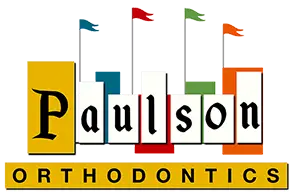Sleep Apnea in Adults
We Love Redlands
We love supporting local businesses! We have selected some of our favorites here, If we missed you, call us to be listed on our locals page!

Treating Adults with Airway Issues
Sleep Apnea, literally means “with‑out breath” in Greek. It is when breathing stops for 10 seconds or more while sleeping.
Signs of Sleep Apnea
- Snoring that may disrupt the sleep of others.
- Gasping, coughing or choking upon wakening
- Waking with your heart racing
- Waking up tired after a full night’s sleep
- Waking up with a headache
- Feeling very sleepy during the day
- Falling asleep without intending to
- Problems with memory or concentration
- Feeling irritable, short-tempered
- Weight gain, inability to lose weight
- Acid Reflux in adults
Left untreated, sleep apnea increases the likelihood of illness or injury. It has been linked to obesity, high blood pressure, strokes, cardiovascular disease, diabetes, and even death. Serious and life-threatening problems start when sleepers begin experiencing apneas (where breathing stops) and hypopneas (where breathing is shallow due to an obstruction). Breathing is usually blocked in the back of the throat when the tongue and muscles relax during sleep, the lower jaw falls back toward the throat, and the airway becomes blocked.
Apneas can last from 10 seconds to much longer periods of time and can occur hundreds of times per night. The body’s oxygen level drops which in turn causes blood pressure to rise. The heart is forced to beat faster, which increases the pulse rate. The silence may end with a loud snort, cough or gasp. This causes the sleeper to awaken briefly without the patient knowing it. Once asleep again, the muscles relax, etc. and the process repeats itself.
Orthodontics Can Help
Orthodontics can play a significant role in managing sleep apnea, especially in adults. Sleep apnea is a serious sleep disorder where breathing repeatedly stops and starts during sleep, often due to obstructed airways. Orthodontic treatments can help address the structural issues in the mouth and jaw that contribute to airway obstruction, thereby alleviating the symptoms of sleep apnea. Here’s how orthodontics can help:
1. Correcting Jaw Misalignment
Orthodontic treatments can correct misalignments between the upper and lower jaws (such as an overbite, underbite, or crossbite) that may contribute to airway obstruction during sleep. By aligning the jaws properly, the airway can remain more open during sleep, reducing the incidence of apnea episodes.
2. Expanding the Palate
Narrow palates can restrict the nasal airway passages and contribute to breathing difficulties. Orthodontic devices like expanders can be used to widen the palate, increasing the volume of the nasal cavity and improving airflow, which can help alleviate obstructive sleep apnea.
3. Adjusting Tooth Position
Orthodontic treatments like braces or Invisalign can adjust the positioning of individual teeth to prevent the tongue from blocking the airway during sleep. Proper tooth alignment can also improve bite and jaw position, contributing to a clearer airway.
4. Mandibular Advancement Devices (MADs)
For adults with mild to moderate obstructive sleep apnea, orthodontists can prescribe mandibular advancement devices. These devices slightly advance the lower jaw (mandible) and tongue, enlarging the airway space to reduce airway obstruction during sleep.
5. Collaboration with Sleep Specialists
Orthodontists can work alongside sleep specialists to develop a comprehensive treatment plan. For example, they can help in fitting and customizing dental appliances designed for sleep apnea treatment, ensuring they are effective and comfortable for the patient.
6. Surgical Orthodontics
In severe cases, surgical orthodontics, such as orthognathic surgery, may be recommended to correct jaw bone abnormalities. These surgeries can significantly improve the airway size, thereby addressing the root cause of sleep apnea in adults.
7. Treating Temporomandibular Joint (TMJ) Disorders
TMJ disorders can impact jaw position and subsequently affect the airway. Orthodontic treatments can help in managing TMJ problems, potentially improving sleep apnea symptoms by stabilizing the jaw in a more favorable position.
REQUEST YOUR FREE CONSULT
